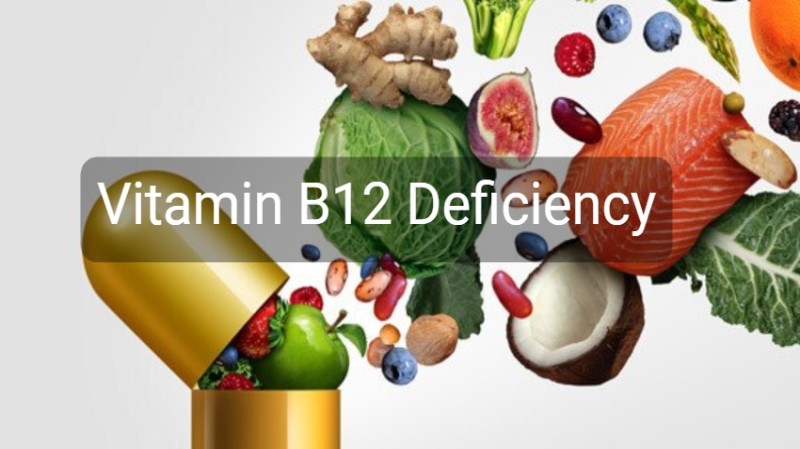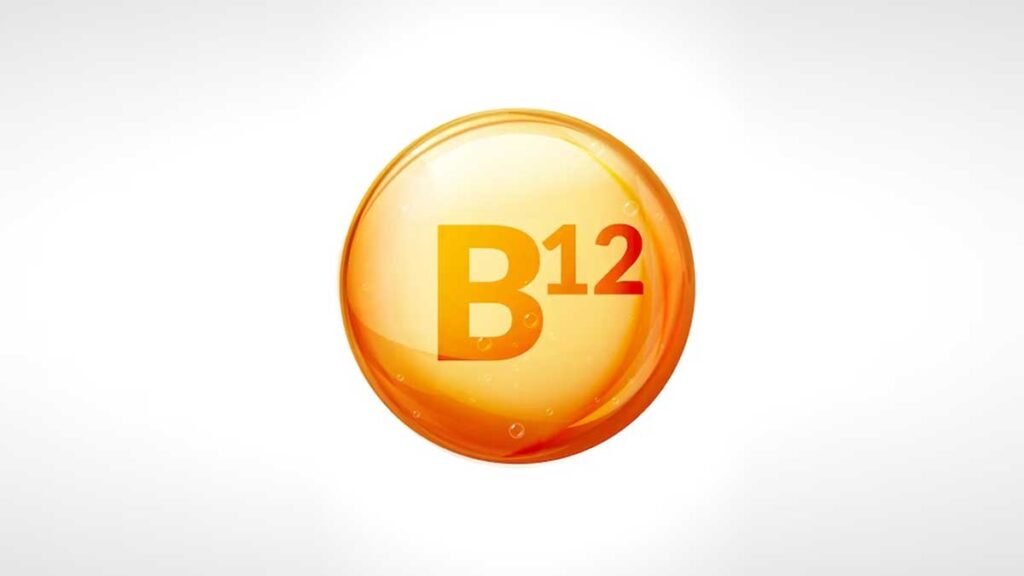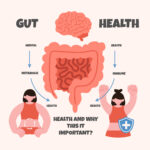Vitamin B12, also known as Cobalamin, is a water-soluble vitamin essential for multiple body
functions. It plays an important role in red blood cell production, brain health, nerve function,
and DNA synthesis.
Since our body cannot produce Vitamin B12 on its own, it must be gathered through diet or
supplements. A deficiency in this crucial vitamin can lead to many serious health concerns,
especially if left undetected over time.
In recent years, Vitamin B12 deficiency has become increasingly common across various age
groups, affecting teenagers, adults, and elderly individuals alike—often without showing obvious
signs in the early stages.
Why Is Vitamin B12 Important?
Vitamin B12 is the fuel your body silently depends on every day. Its benefits include:
- Boosting energy levels and reducing fatigue
- Supporting healthy brain and cognitive function
- Aiding in proper nerve transmission
- Enhancing mood and emotional balance
- Maintaining cardiovascular health
- Helping in the formation of red blood cells
- Preventing megaloblastic anemia
What Causes Vitamin B12 Deficiency?
There are several underlying reasons why Vitamin B12 levels may drop:
- Poor dietary intake – Especially in vegetarians or vegans
- Digestive disorders – Like Crohn’s disease, celiac disease, or IBS
- Low stomach acid – Reduces the ability to absorb B12 from food
- Pernicious anemia – An autoimmune condition affecting absorption
- Age-related absorption issues – Common in older adults
- Excessive alcohol intake – Hinders nutrient absorption
- Long-term use of certain medications – Such as antacids, metformin, and proton pump
inhibitors
Symptoms of Vitamin B12 Deficiency
Vitamin B12 deficiency symptoms can be subtle at first, but they can become severe if ignored.
Here are the most commonly reported signs: - Unexplained Fatigue or Weakness
∆Low B12 levels hinder oxygen transport in the body, leading to constant tiredness and
lethargy. - Pale or Jaundiced Skin
∆A lack of red blood cells can give your skin a pale appearance or lead to mild jaundice. - Numbness or Tingling in Hands and Feet
∆B12 is vital for nerve health, and its deficiency can cause neuropathy symptoms like a tingling
sensation. - Brain Fog and Memory Issues
∆Difficulty concentrating, forgetfulness, and confusion are often seen in individuals with low
B12 levels. - Mood Changes and Depression
∆B12 supports neurotransmitters that affect mood. A deficiency can trigger mood swings,
irritability, or even depression. - Shortness of Breath and Dizziness
∆Due to reduced oxygen circulation in the blood. - Glossitis and Mouth Ulcers
∆Swollen tongue, burning sensations in the mouth, and frequent mouth ulcers can be early
indicators. - Vision Problems
∆In rare cases, B12 deficiency can damage the optic nerve, leading to blurred vision or visual
disturbances. - Heart Palpitations
∆Irregular heartbeat may be linked to megaloblastic anemia caused by B12 deficiency.
Who Is at Risk of Vitamin B12 Deficiency?

● Vegetarians and Vegans
● Elderly individuals (60+)
● People with digestive disorders
● Patients on long-term medications
● Pregnant or breastfeeding women
● Heavy alcohol drinkers
How to Prevent and Manage Vitamin B12 Deficiency
- Eat B12-Rich Foods:
∆Incorporate foods such as:
● Eggs
● Milk and dairy products
● Fish (salmon, tuna, sardines)
● Shellfish (clams, crab)
● Poultry and red meat
● Fortified cereals and plant-based milk (for vegans) - Take Supplements:
∆ Oral B12 tablets or sublingual (under the tongue) supplements are widely available. In cases
of severe deficiency, B12 injections may be prescribed by healthcare providers. - Treat Underlying Conditions:
∆Address digestive disorders or medication-induced absorption issues in consultation with your
doctor. - Regular Monitoring:
∆ Routine blood tests can help identify deficiencies early. A serum B12 level test and
homocysteine or methylmalonic acid (MMA) test may be recommended for accuracy.
Medical Remedies for B12 Deficiency
Depending on severity, treatment may include:
- Cobalamin injections (IM/IV) – Especially for patients with absorption problems
- High-dose oral supplements – Usually 1000 mcg or more
- Intranasal B12 spray or gel – For those with trouble swallowing pills
- Dietary modifications – Long-term solution for maintaining adequate levels
Note: Treatment plans should always be supervised by a qualified medical professional.
∆ While most people associate Vitamin B12 with energy levels and nerve health, few realize its
deeper connection to homocysteine regulation, a compound linked to cardiovascular diseases.
Elevated homocysteine due to B12 deficiency can silently increase your risk of heart conditions
over time. Moreover, recent studies suggest low B12 levels may impair bone density, especially
in older adults, subtly contributing to osteoporosis risk. There’s also emerging evidence
connecting B12 to eye health and infertility concerns. So, beyond the well-known symptoms,
understanding these lesser-known roles of B12 helps in building a more holistic approach to
your long-term health.
Frequently Asked Questions (FAQs)
Q1. How can I know if I have a Vitamin B12 deficiency?
A simple blood test can confirm your B12 levels. Symptoms like fatigue, memory issues, or
tingling sensations may be early indicators.
Q2. Can Vitamin B12 deficiency be reversed?
Yes. With proper diet, supplements, or injections, most symptoms can be reversed if treated
early.
Q3. How long does it take to recover from low B12 levels?
Most people feel better within a few weeks of starting treatment, but full nerve recovery may
take a few months.
Q4. Is it safe to take B12 supplements daily?
Yes. Since it’s a water-soluble vitamin, excess amounts are flushed out through urine. However,
always follow recommended dosages.
Q5. Can Vitamin B12 help with energy and mood?
Absolutely. B12 supports energy metabolism and neurotransmitter function, often improving
both mood and energy levels.
Vitamin B12 might not be talked about as often as other nutrients, but it’s a cornerstone of good
health, especially for your brain, nerves, and blood cells. With the rise in vegan diets, stress,
and poor gut health, Vitamin B12 deficiency is quietly becoming a modern-day concern.
The good news? It’s preventable, manageable, and treatable when addressed at the right time.
So, be mindful of the early signs, nourish your body, and keep your wellness in check, one B12-
rich bite at a time.
Take care and stay alert!

